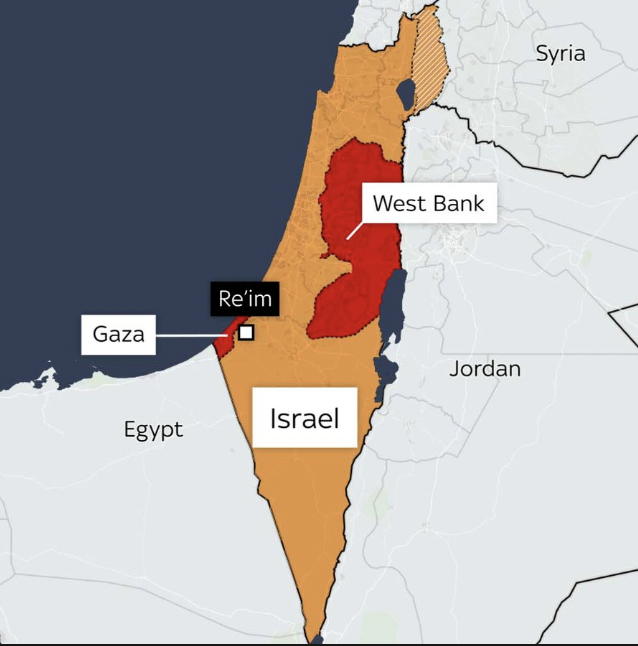Leon M. Goldstein, Brooklyn — As of October 31st, it has been 23 days since the hostilities between the Israeli Defense Forces (IDF) and Hamas began. Following a series of coordinated attacks on its southern territories, Israel declared a state of war against Hamas (a US labeled terrorist organization) and initiated military action against Gaza, a Palestinian territory located to the south of Israel.
Given the devastating impact on civilians in both Israeli and Palestinian territories, it comes as no surprise that our diverse student population, some of whom have relatives or friends in the region, would be deeply affected by the ongoing conflict. In response to this crisis, the leaders of Goldstein High School’s Muslim Students Association (MSA), Jewish Heritage Club (JHC), and Student Government Organization (SGO) have come together to craft a letter addressing the conflict as a means of supporting the school community.
The letter attempts to express heartfelt empathy and support to those directly impacted by the crisis, acknowledging the fear and distress experienced by their loved ones. It calls for unity within the school community, urging everyone to stand in solidarity with the victims. Additionally, the letter provides information about available resources, such as the Guidance Department and the Wellness Council, for those who may be struggling during these difficult times.
The Amicus became aware of a meeting that took place between the MSA and JHC on Tuesday, October 17th. According to verified sources, Mr. Scott Hughes, the school principal, requested that both clubs collaboratively draft a statement addressing the ongoing conflict. The occurrence of the initial meeting and subsequent follow-up meetings was later confirmed by The Amicus.
In these meetings, Mr. Hughes emphasized that the conflict was having a profound impact on both students and staff. He shared a proposal put forth by the SGO, suggesting the publication of a joint letter from the MSA and JHC as a means of offering support to the community in a bipartisan way.
The current version of the letter is the result of the original SGO proposal, which underwent multiple rounds of feedback from both MSA and JHC leaders. Sources close to the matter revealed that the initial letter was relatively apathetic, primarily aiming to convey Goldstein as a supportive community during these challenging times, rather than directly addressing the pain and suffering that the situation has caused for many of the students. This prompted several rounds of modifications, ultimately resulting in a more empathetic tone while still emphasizing Goldstein’s support.
In a statement provided to The Amicus by the leaders of the JHC, they stated, “We personally felt uncomfortable when the other side proposed incorporating historical information in the letter because we want to avoid making it political or interpreted as biased,” which offers an explanation as to why the letter is relatively general.
In a statement provided to The Amicus, the MSA held the position that neither club took the lead in the letter’s creation, and they declined to comment on whether the final version of the letter satisfied them.
After the release of the letter, opinions have been mixed. Overall, the majority of students expressed satisfaction with the letter, noting its impartial tone. However, some students believed that the letter didn’t go far enough and considered it somewhat purposeless. This sentiment was echoed by a few students on social media.
Baker Alshaif and Nikita Osadchiy contributed reporting.

